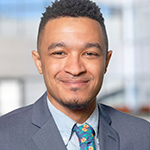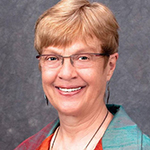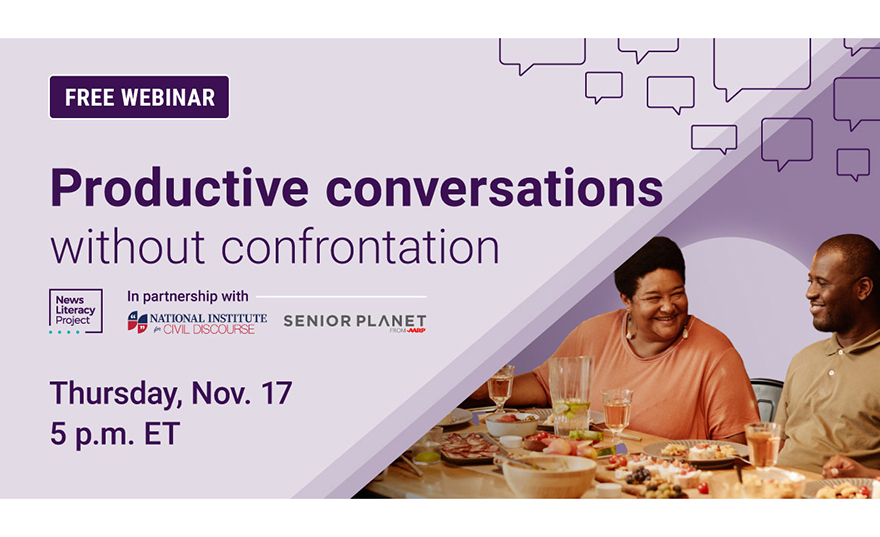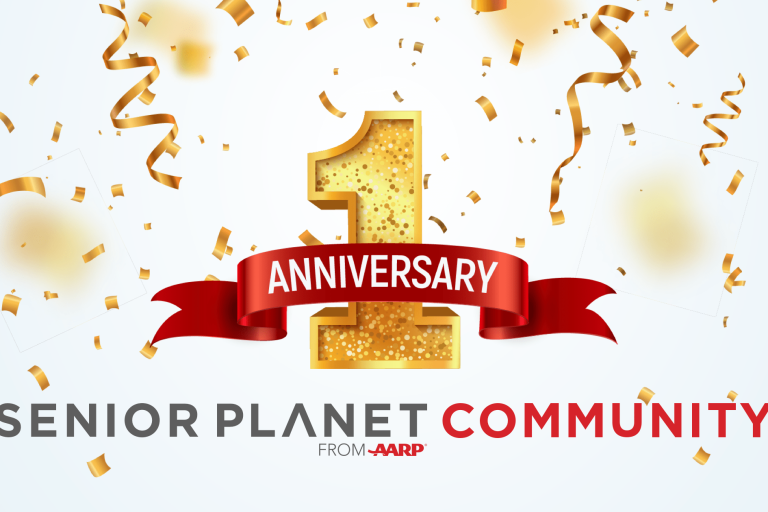Does the thought of navigating difficult conversations around politics make you cringe? Are you concerned with the rise of misinformation and illegitimate news? Ahead of Senior Planet and the News Literacy Project’s next webinar “Productive conversations without confrontation”—designed to effectively prepare you for these complicated conversations— we interviewed DeMario Phipps-Smith, Senior Manager of Community Learning at the News Literacy Project (NLP), and Dr. Carolyn Lukensmeyer, Executive Director at National Institute for Civil Discourse (NICD), to discuss this fourth iteration of the webinar and gain insights on how older adults can deepen their civic engagement and discover the power of their voices.
To learn more about Senior Planet and the NLP, visit here.
How did you get involved with Senior Planet and the News Literacy Project’s upcoming November webinar, “Productive Conversations Without Confrontation”?
DeMario (at left): During the height of the pandemic, I worked on a committee formed to help youth in Chicago connect better with credible information regarding COVID-19. I was astonished to see the amount of misinformation being distributed about vaccinations and the pandemic in local communities.
It really drove home for me the importance of people being able to discern between credible information and misinformation. As a journalist, I hold dearly to the belief that a free press is paramount to a well-run democracy. The News Literacy Project’s vision is to embed news literacy into American education in an effort to empower each individual to engage civically. It is an honor to join this organization at such a critical time in our country.
 Dr. Lukensmeyer (at right): NICD has been working with League of Women Voters members throughout the country on building trust in our democracy through combatting the spread of mis/disinformation and building civil discourse capacity. Through that partnership we starting working with the News Literacy Project and sharing their tools, as well as NICD’s tools. We were pleased when the News Literacy Project introduced us to Senior Planet. This session builds on nearly a decade of work NICD has done to support family and friends conversations happening during the holidays in this unfortunately polarized environment.
Dr. Lukensmeyer (at right): NICD has been working with League of Women Voters members throughout the country on building trust in our democracy through combatting the spread of mis/disinformation and building civil discourse capacity. Through that partnership we starting working with the News Literacy Project and sharing their tools, as well as NICD’s tools. We were pleased when the News Literacy Project introduced us to Senior Planet. This session builds on nearly a decade of work NICD has done to support family and friends conversations happening during the holidays in this unfortunately polarized environment.
What are you hoping attendees take away from this session?
DeMario: The holiday season is a time to enjoy a meal with family and friends, but our dinner table may include people who have deeply held beliefs that are based on falsehoods. Emotions might be especially high this year with the midterm elections wrapping up just a few weeks before Thanksgiving.
People who attend this hour-long session should expect to learn how to identify mis- and dis-information, and how to talk to people who have been misled by news and information that isn’t credible. People will learn the skills they need to have conversations in a productive, non-confrontational way so they can keep the peace around the dinner table – but also help their loved ones become more news literate and make better-informed decisions about what news and information to trust.
Dr. Lukensmeyer: All of us have experienced disruption in relationships that are important to us during these last increasingly hyperpartisan and even menacing times.
“Before starting the conversation we need to check ourselves as to whether we are entering to convince the other person their beliefs are unfounded or whether we are entering the conversation to begin to reknit the relationship.”
Hopefully attendees will learn specific strategies for engaging in conversation with people they care about but have unfortunately become distanced from. Before starting the conversation we need to check ourselves as to whether we are entering to convince the other person their beliefs are unfounded or whether we are entering the conversation to begin to reknit the relationship. If we are really committed to the latter, we can focus on learning and understanding rather than debating or convincing. Remaining curious is essential to keeping the conversation on a productive track.
What do you hope to achieve from partnering with Senior Planet?
DeMario: As news literacy grows as a national movement, we are excited to partner with adult communities who want to learn how to identify credible news and spot misinformation and how they can become more engaged where they live.
“We need people of all ages to join this movement – and that includes seniors.”
We hope to create a movement of people who stand up for facts and take action in the face of mis- and disinformation. We need people of all ages to join this movement – and that includes seniors. We are thrilled to work with Senior Planet, a pioneer in older adult education, to spread the message about the critical need for news literacy.
Why do you believe it’s essential for older adults to understand how to navigate complicated conversations around politics and take an active role in our democracy?
“I believe that we older adults have a special responsibility to stay engaged in the public square effectively..”
Dr. Lukensmeyer: Given different experiences by generation, I believe that we older adults have a special responsibility to stay engaged in the public square effectively and stay active to protect and evolve our democracy. People’s views change by the experiences they have. If we provide leadership and empathy for people who are carrying dystopian views and truly listen to them so they know they have been heard, we have a chance to establish a commitment to fact based exchanges on important political issues despite our differences. That is foundational in a democracy.
Is there an unspoken “etiquette” when faced with these conversations? What should someone do if they encounter “speedbumps” or misinformation?
DeMario: At NLP, we believe in addressing a person with entrenched false beliefs through what we call an ongoing “PEP” talk – an approach based on patience, empathy and persistence. It’s more than just one difficult conversation. You’ll need to understand the feelings and emotions that motivate people to dive deeper into these false narratives. You’ll have to recognize that these are genuine beliefs that “feel” true to the people who share them. Do not criticize or attack. This causes a “backfire effect,” making the person reject contradictory information and hold tighter to anything that reinforces their belief. You need a base level of respect and a genuine desire to commit to a shared set of facts to succeed.
What does “Aging with Attitude” mean to you personally? And how might you apply this to engaging all citizens in governance?
Dr. Lukensmeyer: Having been blessed with opportunities to make a difference throughout my life, to me “Aging with Attitude” means discovering new and collective ways to continue to make a difference in the world and to give back is ways that reflect the experience and wisdom that have come with my journey. My life path has been all about democracy and ensuring that citizens have their rightful seat at the table. This means that all people have perspectives that can improve the policy decisions that make impact our lives. Increasingly we have the tools and know-how to bring people into governance at the local, state, and national levels. What we need more of is the political will to do it.
Register here for “Productive conversations without confrontation,” taking place on Zoom on November 17, at 5 p.m. EST.
Top: Webinar Promo – News Literacy Project
DeMario Headshot – Jenna Braunstein – Northwestern Staff Photographer.
Lukensmeyer Headshot – National Institute for Civil Discourse
 NaBeela Washington, an emerging Black writer, holds a Master’s in Creative Writing and English from Southern New Hampshire University and Bachelor’s in Visual Advertising from The University of Alabama at Birmingham. She has been published in Eater, The Cincinnati Review, and others. Learn more at nabeelawashington.com.
NaBeela Washington, an emerging Black writer, holds a Master’s in Creative Writing and English from Southern New Hampshire University and Bachelor’s in Visual Advertising from The University of Alabama at Birmingham. She has been published in Eater, The Cincinnati Review, and others. Learn more at nabeelawashington.com.





COMMENTS
Sign Up for Newsletters
There’s always a lot going on in the Senior Planet universe. Get our newsletters to make sure you never miss a thing!
Sign Up Now